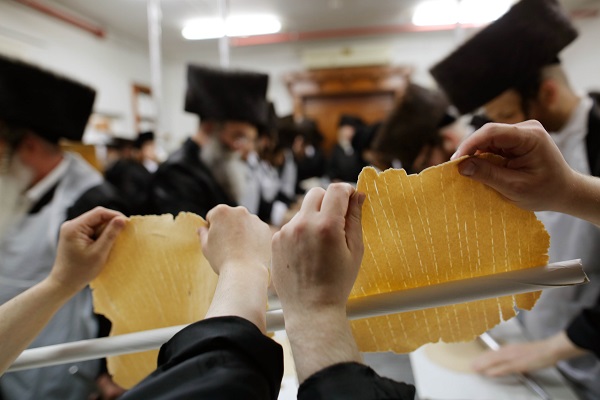Jerusalem, (Samajweekly) Israeli lawmakers have passed a controversial law banning all leavened bread products that are not kosher for the Passover holiday in hospitals, according to Orthodox Jewish law.
The law, sponsored by Israel’s hard-right and ultra-religious government, passed on Tuesday by a narrow margin of 48-43 in the 120-seat Knesset, or Parliament, reports Xinhua news agency.
The remaining lawmakers either abstained from voting or were absent during the vote.
The legislation follows religious Jewish laws that prohibit believers from eating wheat-based foods and beverages, known as “chametz”, during the seven-day Passover holiday.
The new law authorises hospital directors to ban the supply of “chametz” foods in hospitals and forbid visitors from bringing such items.
An earlier version of the controversial bill authorised hospital security staff to inspect visitors and search for “chametz” products, but the final version does not allow direct searches.
The law sparked anger and criticism, with opponents saying it imposes Jewish dietary restrictions on non-religious people.
A significant portion of the Israeli population may be affected by the new law, despite not practicing Judaism or observing Jewish dietary laws.
According to official figures, about 20 per cent of Israel’s 9.7 million population are Muslim or Christian Arabs, and more than 40 per cent of the Jewish population live a secular lifestyle.
Addressing the Knesset, opposition leader Yair Lapid, who heads the liberal Yesh Atid party, denounced the law as “forcing Judaism” on citizens.
Uriel Boso, a lawmaker with the ultra-Orthodox party of Shas, argued in the Knesset that the law is “balanced”.
According to Boso, the coalition drafted the bill after the Supreme Court ruled in 2021 that hospitals do not have the authority to ban “chametz” during Passover.
Passover, also called Pesach, is a major Jewish holiday that celebrates the Biblical story of the Israelites escape from slavery in Egypt. This year it begins at sundown on April 5 and ends on April 13.
The law comes as Israel was facing three-week-long massive protests over a contentious plan by Prime Minister Benjamin Netanyahu’s government to overhaul the judiciary and weaken the Supreme Court.










